
After Working Remotely For 2 Months, Twitter Says They’ll Allow Employees To Work From Home Forever
Some Twitter employees may never return to their office. Company CEO Jack Dorsey emailed his staff on Tuesday to tell them that they’d be allowed to work from home even after the pandemic lockdown passes. Permanently. Although some jobs that require physical presence, for example, maintaining servers, will still require people to come in.
“We’ve been very thoughtful in how we’ve approached this from the time we were one of the first companies to move to a work-from-home model,” a Twitter spokesperson told BuzzFeed News. “We’ll continue to be, and we’ll continue to put the safety of our people and communities first.”
Image credits: travis.af.mil
Twitter encouraged its employees to start working from home at the beginning of March, just as the coronavirus started to spread across the US. Other big tech companies did the same, including Microsoft and Google.
That month, Twitter human resources head Jennifer Christie said the company would “never probably be the same” in the structure of its work. “People who were reticent to work remotely will find that they really thrive that way,” Christie said. “Managers who didn’t think they could manage teams that were remote will have a different perspective. I do think we won’t go back.”
Image credits: JD Lasica
A Twitter spokesperson told Tech Crunch that the company is uniquely positioned to respond quickly and allow folks to work from home, emphasizing decentralization and supporting a distributed workforce capable of working from anywhere.
The past few months have proven they can make that work. “So if our employees are in a role and situation that enables them to work from home and they want to continue to do so forever, we will make that happen. If not, our offices will be their warm and welcoming selves, with some additional precautions, when we feel it’s safe to return.”
Brittany Harker Martin, an associate professor of leadership, policy & governance at the University of Calgary, finds it interesting that such a technologically mediated company had to wait for a pandemic to see whether or not there was a business case for this. “I think we will start to see other companies follow suit simply because they finally have the data to show that this can work,” Martin told Bored Panda. “You will note that Twitter has not offered this to everyone. There are many jobs that are suited for telework, and employees with the right profile and situation to be effective and satisfied while working from home, and the opposite is true: some jobs require face-to-face interaction or proximity, and some people are not good in a remote work context.”
Martin thinks that companies were wary of such a move because they needed certainty that allowing their employees to work from home could be equally if not more profitable than sticking with the status quo. They needed to see that it worked, and that people could do it. “Today, at least for now, we are living in a world where certainty no longer drives business decisions and I suspect we will see a trend of more telework opportunities.”
“That said, there are also many employees who are currently forced into telework situations who are working in suboptimal circumstances: cramped conditions with grumpy ‘co-workers’ competing for space and resources and home-schooling children,” Martin added. “For many, their taste of telework has been bitter, and although this is an inaccurate portrayal of most successful telework environments, it will still inform the discourse and trends going forward.”
Over the last few weeks, it’s been reported that major corporations, including JPMorgan, Facebook, Capital One, Amazon, Microsoft, Zillow, and others, announced that they’re extending their work-from-home policies. Who knows, maybe they will adopt Twitter’s new model as well.
People are applauding the company for making this decision
Image credits: Kantrowitz
Image credits: dvassallo
Image credits: yashar
Image credits: GodisRivera
Image credits: BrentToderian
Image credits: jess
Image credits: EricaJoy
Image credits: jack
Image credits: theashleyray
Image credits: sarahfrier
Image credits: EVargasTV
Image credits: aeo2626
Image credits: bloodrootholler
Image credits: AndreZollars
Image credits: NYDKFL
Twitter isnt doing this for your safety/ benefit.....its doing it for theirs...less people in a building means less a/c,electric,heat,maintenance, etc.. Meanwhile you get to stay home for 8 hrs and pay for that yourself
One of the company that I worked with, they will pay a portion of your internet bill and the electricity. They have a capped or maximum amount to reimburse their employees working from home. They even give a budget for you to buy or setup your working desk/table and a computer chair. The laptop is usually company property, you don't get to pay for anything even for accessories or repairs.
Load More Replies...Twitter produces an internet service. The easiest work do do from home. How is this happening only now?
Twitter isnt doing this for your safety/ benefit.....its doing it for theirs...less people in a building means less a/c,electric,heat,maintenance, etc.. Meanwhile you get to stay home for 8 hrs and pay for that yourself
One of the company that I worked with, they will pay a portion of your internet bill and the electricity. They have a capped or maximum amount to reimburse their employees working from home. They even give a budget for you to buy or setup your working desk/table and a computer chair. The laptop is usually company property, you don't get to pay for anything even for accessories or repairs.
Load More Replies...Twitter produces an internet service. The easiest work do do from home. How is this happening only now?

 Dark Mode
Dark Mode 

 No fees, cancel anytime
No fees, cancel anytime 






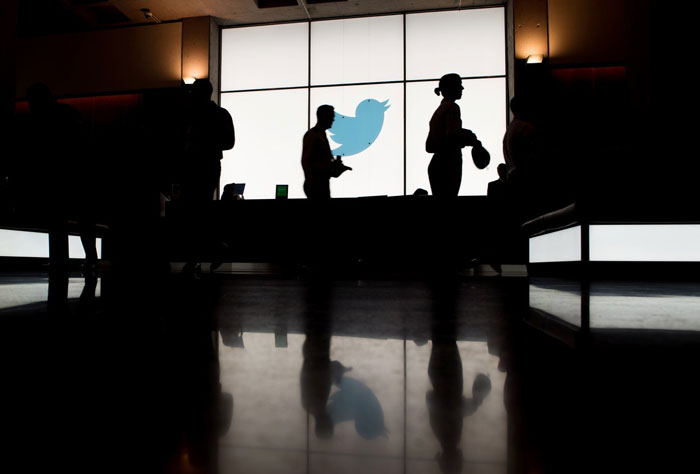

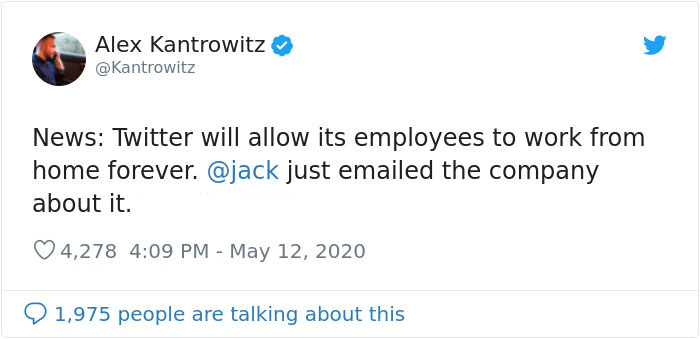
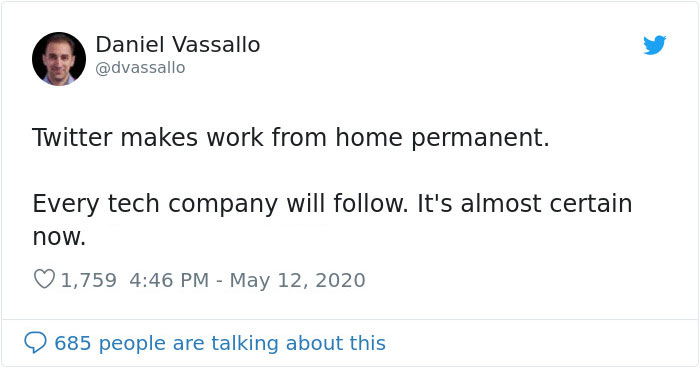
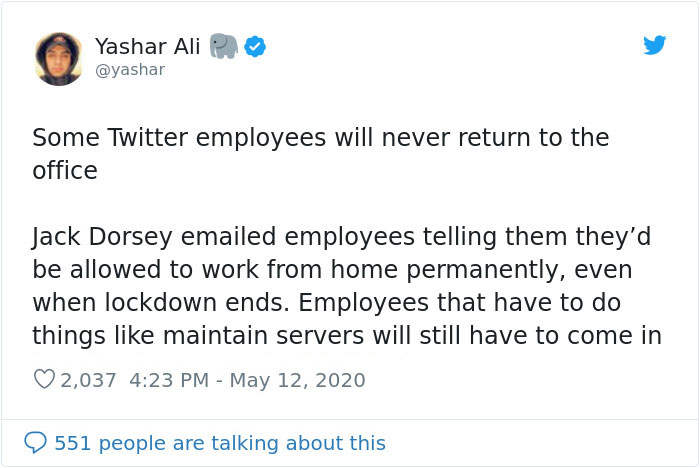






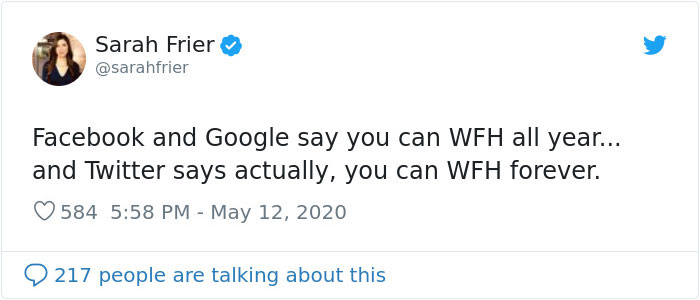

















































139
36